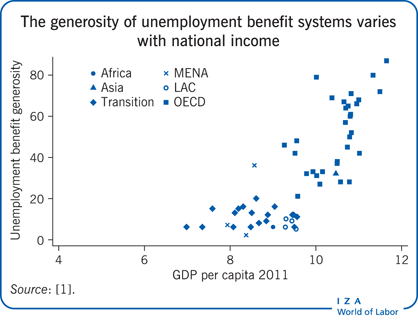Elevator pitch
In reforming unemployment benefit systems, the policy debate should be on the appropriate level of benefits, the subsidies needed for people who cannot contribute enough, and how to finance the subsidies, rather than on whether unemployment insurance or individual unemployment savings accounts are better. Unemployment insurance finances subsidies through implicit taxes on savings, while individual savings accounts with solidarity funds finance subsidies through payroll taxes. Taxes on certain consumption goods and real estate could be considered as well and could be less distortionary.
Key findings
Pros
Unemployment benefits can help individuals find better jobs than when there is no insurance.
Unemployment benefits can support aggregate demand in times of crisis.
Unemployment insurance can lead to more income redistribution and better protection of workers.
Individual savings accounts can improve incentives to search for jobs because savings that are not used to finance unemployment benefits can be used to finance investments or higher pensions.
Cons
Unemployment insurance can reduce incentives to search for jobs, thus increasing both the length of unemployment spells and the rate of unemployment.
Individual savings accounts might not provide sufficient protection to workers, particularly those with low levels of human capital who face a higher probability of unemployment.
Individual unemployment savings accounts reduce incentives to keep jobs when the mandate to save is too high or the interest rate on savings is not competitive.
Contribution rates to finance meaningful benefits can be high in individual savings accounts.
